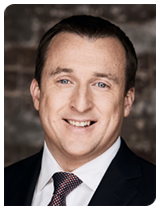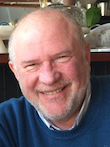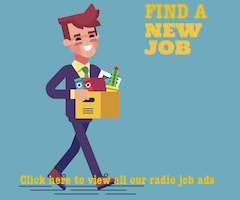Peter Saxon asks four network chiefs.
Without having done an official count, I’m guessing that the most frequently used word to describe events in 2020 is “unprecedented.”
From natural disasters to political tensions in the U.S. and an increasingly aggressive China, to the global pandemic and its staggering human and financial cost, 2020 has been a year to forget.
If only we could choose to relive a favourite year in the same way we can re-watch our favourite movies on demand. Who wouldn’t love the ability to turn off this rubbish year and relive 2000 instead? If I recall, the most anxiety I experienced that year was watching Cathy Freeman light the caldron at the Sydney Olympics and wondering what was wrong with the bloody thing when it refused to budge in front of an international audience of more than a billion.
While most of us are grateful to be living in the relative serenity of Australia right now, we have not escaped a horrific bushfire season nor been immune from the ravages of COVID-19. The pandemic, in particular, has had a profound and, dare I say, “unprecedented” impact on society and business at every level.
Amongst all this upheaval, there’s good news and bad for radio. The good news is that listening, nationally has increased overall but the bad news for commercial radio is that revenue, although improving now, which would normally follow listener growth had fallen off a cliff, resulting in hundreds of jobs lost. Late last year, the public broadcaster also shed staff amid budget cuts.
Unprecedented too, was the cancelling of GfK Surveys 3,4 and 5 making Survey 6 (which, like the 6th child of 8, is usually unremarkable) one of the most anticipated in history.
In the aftermath of Survey 6 we spoke to the content chiefs of SCA, Nova Entertainment, ARN as well as the CEO of Nine Radio to determine how to what extent COVID-19 has affected listener patterns and what may happen next.
One thing they that was clear to all of them was that COVID had an enormous impact on listening habits in Melbourne, less so in Sydney and almost none in Brisbane, Adelaide and Perth which have been relatively unscathed by the disease.
Said Nova Entertainment’s Paul Jackson, “They were affected massively in Melbourne. About 11 share point have moved to the ABC and 3AW at breakfast time. So, I think we should take Melbourne separately.”
ARN’s Duncan Campbell agrees there were significant changes in Melbourne in terms of movement of audiences the increases and decreases in share and cume. Yet he admits, “I thought there might have been similar movements outside of Melbourne, but it simply didn’t do that.
“What’s interesting is that total listening to (all) radio between surveys 2 and 6 is exactly the same. So, there’s no movement there in terms of the average audience. Home listening, nationally, went up 18 per cent while in-car listening nationally went down 18 per cent. And at work listening went down 20 per cent.
But if you take Melbourne (on its own) then we saw an increase in total listening of 5 per cent, which is interesting, but an increase in at home listening of 56 per cent. In car is down by 55 per cent. And at work listening down 37 per cent and so the impact was certainly greater in Melbourne and the movements between the stations much greater as well.”
The main beneficiary of all this movement in both Melbourne and Sydney is Nine Radio. Having made significant changes to its line-up, the network heavies were on tenterhooks awaiting the results of Survey 6 – particularly, in regards to Sydney Breakfast, where Ben Fordham had replaced the fabled Alan Jones. Word had it that said heavies would have been mightily pleased if Fordham had manged to retain a 12.0 share. Instead, on survey day, they woke to a whopping 17.3.
Meanwhile, in Melbourne, where adman Russel Howcroft had replaced the much loved John Burns as co-host alongside Ross Stevenson, the 3AW Breakfast show shot up by a truly unprecedented 8.8 to land on an incredible 26.1 per cent share helping raise the overall station share to 16.9.

Nine Radio CEO, Tom Malone (left) refused to get carried away with this runnaway success,
“I’ve been consistent with what I’ve said to people which is: this is but the first survey in what is our new strategy at Nine Radio and we’ve made a lot of changes in Brisbane Sydney Melbourne. So, we’re really grateful to the listeners for being loyal to the stations and for supporting the changes that we’ve made.
It’s a really good result for talk radio. It shows that talk radio is the place people come to for their latest news sport weather traffic and that this and this and the stations they rely on as trusted sources of opinion and companionship.
“And I think it’s been an unprecedented time in Australia’s history even more so in Victoria. Some of this is COVID related and perhaps the results wouldn’t have been so great without the COVID-19 pandemic.”
The ABC also had a blinder in Melbourne. The station was up 3.0 to reach a 12.7 share. With the AM talk stations hoovering up so many listeners, the FM music stations plummeted. FM leader GOLD104.3 was down 2.0, Fox was down by 2.2 as was smoothfm while Nova shed 1.9 and 3JJJ lost an eye-watering 3.4 – almost half its audience share.
Duncan Campbell, with both his stations, GOLD and KIIS losing listeners remains unphased, “The fact is the rankings are still very solid and that shift in listening is easily explained based on what what is happening (with the lockdown.)”
Paul Jackson is optimistic of a bounce back saying, “The numbers will improve for all the commercial stations, although very differently, probably by about survey eight.”
But one FM station in Melbourne bucked the trend. Triple M was up 0.9. Find out why in Part Two, tomorrow. Also, how on demand radio has “gone through the roof.” and what that might mean for the future.

Peter Saxon
Subscribe to the radioinfo flash briefing podcast on these platforms: Acast, Apple iTunes Podcasts, Podtail, Spotify, Google Podcasts, TuneIn, or wherever you get your podcasts.



